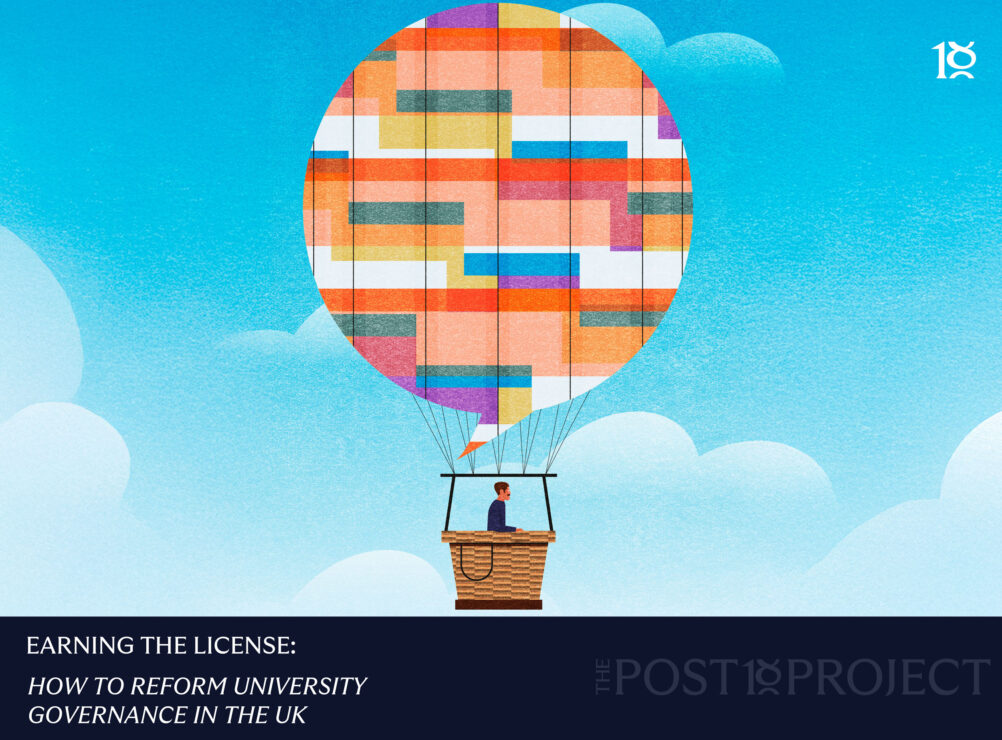It was a delight to speak at Wonkhe’s BrHExit event exploring what leaving the EU means for UK higher education. As one of the first events within the sector to debate this issue, and only 47 days after what many in higher education view as a deleterious, if not disastrous, result, inevitably there was still some talk of a second referendum, of a country divided, of remain voters making a mass exodus to Canada or Ireland….
Many in the sector are still experiencing the seven stages of grief. But it wasn’t all doom and gloom. There were some glimmers of optimism amongst both the speakers and the audience. My view? I’m all for being upbeat. I am convinced there are huge opportunities available to us through Brexit, as long as we act quickly, decisively and in unity.
I couldn’t agree more, for example, with Jonathan Simons’ advice that we must not focus on trying to simply preserve as much as possible of what was good about the EU, but rather we must be ambitious about what we can achieve beyond what we previous had. Alastair Jarvis’ words echoed this sentiment by encouraging us all to think beyond “EU-centric arguments and set out a vision with global ambition.”
As for me, I firmly believe that whilst Britain may have exited the EU, British universities have not. We must remember this. We may have left the political and economic union, but we will never let the intellectual, cultural and educational links collapse.
Our reach and impact in UK higher education extends beyond physical and geographical barriers; it is about freedom of thought and speech. We still retain the power to transform individuals, communities and societies, irrespective of the colour of the passport. I do not believe that these fundamental aspects of HE will be eroded by our departure from the EU. On the contrary, we now have the potential to make UK higher education even more influential on the global stage.
Whilst nearly a third (29%) of international students that study in the UK may be from the EU, globally, over 4.1 million students study in a different country from their origin. We are currently a very small slice of that market. Emerging market economies such as South Africa are predicted to grow almost three times faster than developed ones, accounting for an average of 65% of global economic growth through 2020. More and more citizens of these countries are making ‘graduating from university’ among their top priorities in life. A recent analysis into Nigeria shows an emerging market where a rapidly growing middle class has led to a huge demand for quality education that cannot be met by local providers alone. In my home country of India, there are 500 million such people aspiring to be middle class.
So I don’t think we have a problem of population, but rather of access. Not all these people will want, or are able, to come to study in the UK. Let’s take our education to them! For some reason the UK still lags behind other countries in offering our education online – perhaps it is in part because of an over-reliance on the supply of students from the 11% of the global population nearest to us within the EU. The UK-based MOOC platform ‘Future Learn’ holds only around 6% of the global MOOC market. The online education market clearly offers a significant area for growth, if only we can work to grasp it.
As a Pro Vice Chancellor for Global Engagement, of course, I’m all about internationalisation. But the dialogue has for too long been focused on the simple import/export, transactional model of internationalisation. I’m not saying that this isn’t changing and that, in pockets, we are moving towards a more integrated, comprehensive approach to internationalisation within our universities. But we need to unite the sector and drive this agenda forward with – and if needed on behalf of – government. Innovation is essential here. This isn’t just about doing more of what we are already doing; Brexit means doing things differently.
Again, let’s just look at the numbers for a moment: the £7.3bn in EU funding for research granted to the UK to date is clearly not an insignificant sum. And whilst 18.9% of UK’s research funding comes from international sources (both EU and non-EU), only 5% of UK research funding is from non-EU sources. Our over-reliance on EU funding is unhealthy. Perhaps our uncertainty over EU funding may now push us to focus on additional global opportunities.
There has also in recent years been an increasing call within the sector that we must work more closely with the industries and employers that recruit our talent. Sir Tim Wilson’s review in 2012 highlighted the importance of universities working closely with industry to develop the skills that graduates need for the world of work. The recently established National Centre for Universities and Businesses (NCUB) provides further evidence of the importance of promoting university-industry collaborations. But as a sector, our success in this area is patchy to say the least – the UK HE sector may have attracted £7.9bn of funding in 2014-15 to support our research, but only 4% of this income comes from businesses. There is great value, and now a great imperative, in working much more actively with the private sector – regionally, nationally and internationally – be it for research, for student employability and employment, or for staff development.
So, I am not mourning Brexit at all. Geographical boundaries and barriers cannot restrict any individual or organisation driven enough to transcend them. In fact, I relish the opportunities ahead of us and I look forward to greater collaboration with my colleagues within the UK, in Europe and around the globe.
Wonkhe’s event was very cleverly titled ‘BrHExit: Where next for Universities and Europe?’ I say let’s not worry about #BrHExit and embrace #BrIntHErnational!













